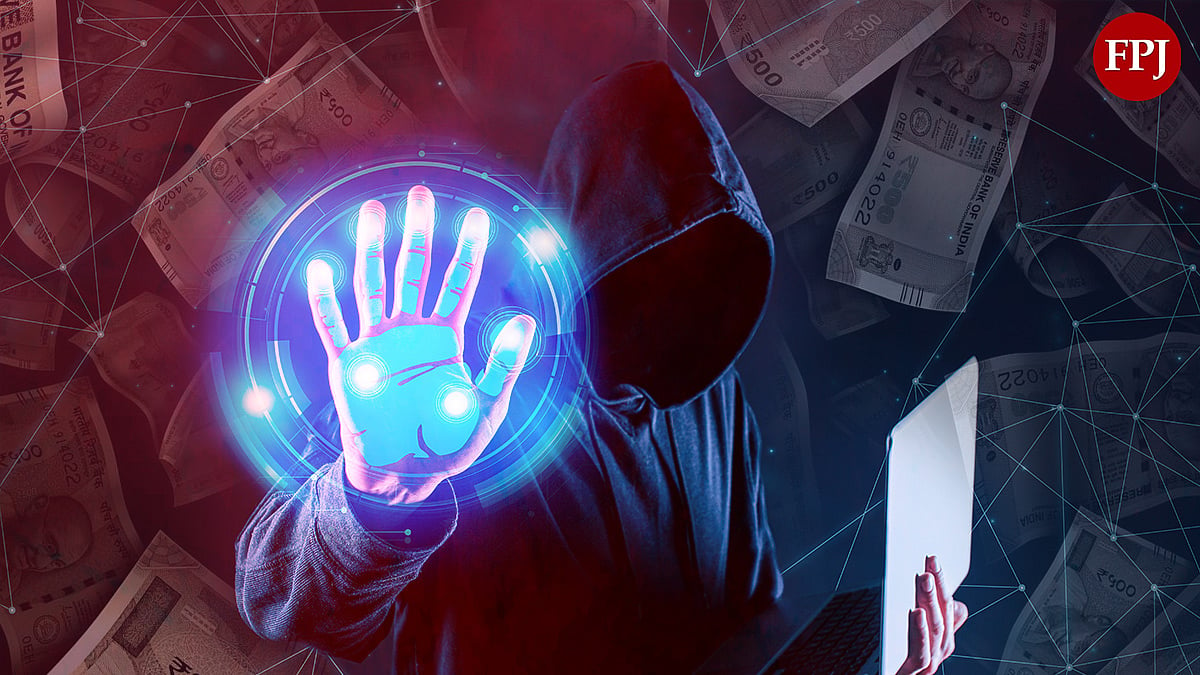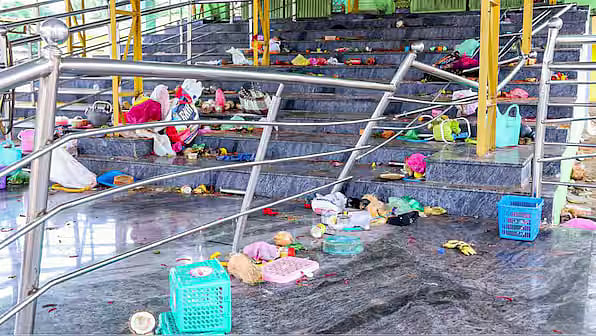In an important and significant order last week, the Supreme Court (SC) ordered the creation of a special technical committee, whose functioning will be overseen by a retired SC judge, to probe allegations regarding the use of Pegasus spyware against Indian citizens. In doing so, the SC has emphatically reasserted its role and responsibilities as the custodian of individual rights in accordance with the Constitution.
The three-judge bench, headed by Chief Justice of India N V Ramana, while criticising the Union government for its refusal to clarify whether it had purchased and used the sophisticated spyware said that it had to accept the prima facie case of the petitioners, including the victims of Pegasus hacking, and examine their allegations.
Calling the Union government’s ‘limited affidavit’ submitted in the court in response to the petitions that alleged the use of Pegasus spyware for surveillance on private citizens an ‘omnibus and vague denial’, the three-judge bench also rejected the government’s plea to let it constitute an expert panel to investigate the issue.
No respite for govt
This is significant because having rejected the government’s plea to set up its own probe, the court has taken upon itself the task of a thorough inquiry by an expert technical committee to ensure a free and fair investigation that will be overseen by former SC judge Justice R V Raveendran. The committee will submit its report to the Supreme Court, thus keeping the government out of it completely.
By refusing to accept the blanket argument of national security for the government’s refusal to file a detailed affidavit or answer whether the Centre had procured the spyware at all, the SC has given no respite to the government, holding it accountable for its actions and clearly saying that the government will have to plead its case from now on.
This means even if the government declines to provide information on whether there is a specific immunity under a specific statute such as those pertaining to the national security, the court has made it obligatory on the government to not only specifically plead such constitutional concerns or statutory immunity, but also must prove and justify the same in court on affidavit.
While by ordering a probe, the court has said its intervention is to ‘uphold the constitutional aspirations and rule of law’ without being ‘consumed in the political rhetoric’, the court also made it clear that ‘indiscriminate spying on individuals cannot be allowed except with sufficient statutory safeguards, by following the procedure established by law under the Constitution’.
'Orwellian concern'
Observing that the writ petitions filed in the Pegasus spyware case ‘raise an Orwellian concern about the alleged possibility of utilising modern technology to hear what you hear, see what you see and know what you do,’ the court has set six terms of reference for the Justice Raveendran committee, ranging from confirming the use of Pegasus spyware on citizens, the details of those affected to whether the government or any other party procured the spyware to use on citizens and the laws that could have allowed such use.
Significantly, these are the same questions the government refused to answer before the court. Again, these are more or less the same questions that the Opposition had raised in the last session of Parliament but the government refused to answer. Not surprisingly, opposition parties feel vindicated by the SC order for a time-bound probe into whether any Central government agencies misused Pegasus spyware.
While welcoming the order, Opposition parties said it had vindicated their position and exposed the government’s attempts to evade inquiry or debate in Parliament. The SC has also asked the Raveendran committee to make recommendations on a legal and policy framework to protect citizens against surveillance and enhance India’s cyber security.
The impact of the order and the conclusions arrived at by the committee will only be known in time, but much will depend on how the committee will conduct the proceedings and enquire into the detailed and meticulously crafted terms of reference. The committee will also have to deal with the machinations and stonewalling aimed at preventing a meaningful inquiry. The court’s order is a rebuttal of the government’s oft-repeated and specious use of national security as a cover to stonewall inconvenient information and criminalise all forms of dissent.
Democracy can breathe again
Apart from the legal aspect of the interim order, its implications, according to experts, may have many dimensions and have the potential to let Indian democracy breathe again, given that free speech has been under constant threat with multiple sedition and criminal cases against activists and media persons and muzzling of democratic dissent. It is why the interim judgment has been received with a sense of relief and has been described as ‘historic’ and ‘a watershed’ by some legal experts.
While some people have called the interim order a prima facie indictment of the Modi government, others have called it a major blow in favour of free speech and investigative journalism. By raising some vital questions about citizens’ basic rights, the SC order makes it amply clear that privacy and free speech are sacrosanct constitutional values which cannot be sacrificed at the altar of national security.
The writer is an independent Mumbai-based senior journalist









